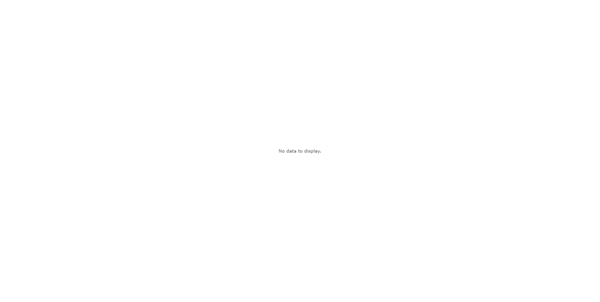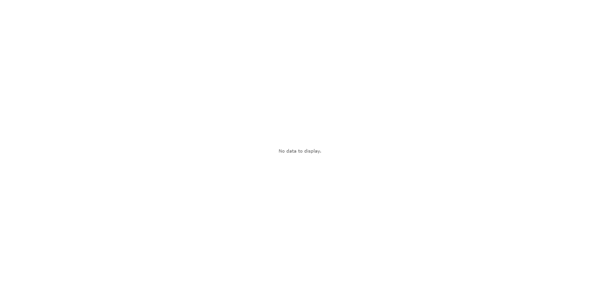The COVID-19 pandemic not only impacted the entire pharmaceutical supply chain but also disrupted the supply of APIs from China. This led to an increase in the cost of many prescription medications and the shortage of essential drugs in the country. As per an article published in November 2020, due to the pandemic outbreak, supplies of raw materials from China to produce medications for treating chronic diseases, such as HIV, cancer, epilepsy, and malaria, and even commonly used antibiotics and vitamin pills were affected. This led to a shortage of drugs, especially in the cardiovascular and antibiotic categories. However, the government initiatives to increase the production of active pharmaceutical ingredients have positively impacted market growth. For instance, in June 2020, the Indian government readied INR 10,000 crore (USD 100 billion) in schemes to boost the domestic production of APIs. The scheme entails providing production-linked incentives (PLIs) worth 6,490 crores (approximately USD 65 billion) to companies that invest in domestic manufacturing of critical key starting materials (KSM), which require active pharmaceutical ingredients (APIs), for drugs used to treat diabetes, tuberculosis, steroids, and antibiotics. This is expected to increase the market growth over the forecast period.
Other factors boosting the market growth include the increasing prevalence of infectious, genetic, cardiovascular, and other chronic disorders, the growing geriatric population, expanding adoption of biologics and biosimilars, and the rising production of generic drugs in the country.
The Indian pharmaceutical industry is the world's third-largest drug producer by volume. India operates over 250 facilities approved by the USFDA and UKMHRA and provides generic pharmaceuticals at affordable prices to millions of people worldwide.
The rising burden of infectious, genetic, and other chronic diseases such as cancer, diabetes, and neurological disorders is the key factor driving the market growth. For instance, as per the 2022 statistics published by IDF, about 74 million people had diabetes in 2021 in India, and this number is estimated to reach 92.9 million by 2030. Thus, the high diabetic population in the country raises the company's focus on developing advanced and safe drugs that require a large amount of API, propelling the market growth.
The growing geriatric population is more prone to develop chronic diseases, such as cardiovascular and neurological diseases, arthritis, etc., due to weak immunity. Aging affects many cellular processes predisposing to neurodegeneration, which is anticipated to increase market growth. For a study published in May 2021, about 18,896 people were screened for Parkinson's disease. The overall pervasiveness of the disease was almost 42.3 per 100,000. According to the same source, the prevalence over the age of 60 was 308.9 per 100,000, reflecting the trend of increasing disease predominance. Hence, the high burden of Parkinson's disorders among the elderly is anticipated to increase the demand for various therapeutic drugs and treatments. This is expected to boost the demand for APIs over market growth.
The increasing adoption of biosimilars and biologic drugs and rising company initiatives are expected to increase market growth. For instance, in October 2022, Biocon Biologics entered into a strategic out-licensing agreement with Yoshindo, a Japanese pharmaceutical company, to commercialize two of its pipeline biosimilar assets, Ustekinumab and Denosumab, in Japan. Also, in May 2022, Biocon biologic and Viatris launched bevacizumab (Abevmy), a biosimilar of Avastin (Roche), to treat various cancer in Canada.
Furthermore, the government of India is taking initiatives to boost API products in the market, which will benefit market growth. For instance, as per the India Brand Equity Foundation (IBEF), in January 2021, the Central government announced to set up of three bulk drug parks for INR 14,300 crores (USD 1,957 million) to manufacture chemical compounds or active pharmaceutical ingredients (APIs) for medicines and reduce imports from China. Also, in June 2021, the Finance Minister of India announced an additional outlay of INR 197,000 crores (USD 26,578.3 million) that will be utilized over five years for the pharmaceutical PLI scheme in 13 key sectors, such as active pharmaceutical ingredients, drug intermediaries, and key starting materials.
Moreover, the increasing company's focus on adopting various business strategies, such as collaboration, agreement, and others, and rising generic drug production in the country contribute to market growth. For instance, in January 2022, Alembic Pharmaceuticals received USFDA approval for its generic Entacapone tablets for treating patients with Parkinson's disease. The drug is available in the strength of 200mg as well. As of March 2021, Piramal Pharma Solution acquired a 100% stake in Hemmo Pharmaceuticals Pvt. for INR 775 crores (approx USD 85 million). This acquisition signals PPS' entry into the development and production of peptide APIs. This competency complements PPS' current service offering as it continues to grow and expand its capabilities and position as a top CDMO.
Therefore, owing to the aforementioned factors, the studied market is expected to grow over the forecast period. However, the stringent regulations for drug approvals, various drug price policies in the country, and high competition among API manufacturers are expected to hinder India's active pharmaceutical ingredient market growth over the forecast period.
India Active Pharmaceutical Ingredients (API) Market Trends
Oncology Segment Expects to Register a High CAGR
The oncology segment is expected to witness significant growth in India's API industry over the forecast period. The factors attributing to the market growth are the rising burden of cancer cases, growing awareness of the diseases and treatment of the early-onset cancer epidemic, and increasing product launches.According to the GLOBOCAN 2020 factsheet, 1,324,413 new cancer cases (in 678,383 females and 646,030 males) were reported in India in 2020. Also, the ICMR 2021 Report expected the number of cancer patients in India to rise from 26.7 million in 2021 to 29.8 million in 2025. Thus, the expected increase in the number of people suffering from cancer raises the need to develop effective drugs. This, in turn, is anticipated to fuel the demand for API, propelling market growth.
The rising government initiatives to increase cancer awareness, diagnosis, and treatment among the population, along with the rising company initiatives for funding, are also contributing to the segment growth. For instance, in October 2022, Wacoal India partnered with Cancer Patients Aid Association (CPAA) as a part of its WacoalKnowsBreast initiative to address cancer through its distinctive philosophy and framework of 'Total Management of Cancer' to donate a portion of funds generated from its October sales. Such initiatives are expected to increase the demand for various chemotherapy and other drugs and further fuel the requirement for APIs for developing drugs over the forecast period, thereby boosting market growth. Also, in February 2022, the Tamil Nadu Health Minister announced framing a policy to identify 66% of cancers in men and women in the first and second stages by 2030.
Therefore, owing to the factors such as the high prevalence of cancer and increasing government and company initiatives in the country, the studied segment is anticipated to witness growth over the forecast period.
Branded Segment Expected to Own a Significant Market Share
The branded segment is expected to grow over the forecast period owing to the factors such as the high burden of chronic diseases, growing awareness regarding branded drugs among the population, as well as increasing company activities in developing drugs in the country. As per the ICMR 2021 report, it has been observed that the number of cancer patients in India was expected to rise from 26.7 million in 2021 to 29.8 million in 2025. Thus, the expected increase in the number of people suffering from cancer is anticipated to accelerate the development of effective drugs. This is expected to fuel the demand for APIs in the country, boosting the market growth.Furthermore, according to the 2022 statistics published by UNICEF World Obesity Atlas, in India, more than 27 million children are expected to suffer from obesity by 2030. The high burden of obesity among the population increases the risk of developing various chronic diseases, such as coronary artery disease, diabetes, hypertension, and others. This is expected to increase the demand for highly effective drugs for treating such conditions, hence propelling the segment's growth.
Moreover, the rising company activities in developing branded drugs are also expected to increase the demand for APIs, which is further anticipated to augment the market growth. For instance, in October 2022, Glenmark launched a fixed-dose combination, Teneligliptin + Dapagliflozin, to treat adult patients with type-2 diabetes. Also, in October 2021, Natco Pharma launched a fixed-dose variety of Trifluridine and Tipiracil, under the brand name Tipanat, a novel antineoplastic nucleoside for the treatment of advanced colorectal and gastric cancers in the United States market.
Therefore, significant factors, such as the rising burden of cancer and obesity among the population and the increasing drug launches in the country, are anticipated to boost segment growth over the forecast period.
India Active Pharmaceutical Ingredients (API) Industry Overview
The Indian active pharmaceutical ingredients market is relatively fragmented. The API market has several manufacturers focusing on expanding their footprints by adopting various business strategies such as collaborations, facility expansion, and drug approvals. Some of the companies in the market are Aurobindo Pharma, Teva Pharmaceutical Industries Ltd, Lupin Ltd, Viatris Inc., Sun Pharmaceuticals Limited, and Dr. Reddy's Laboratories Ltd, among others.Additional Benefits:
- The market estimate (ME) sheet in Excel format
- 3 months of analyst support
This product will be delivered within 2 business days.
Table of Contents
Companies Mentioned (Partial List)
A selection of companies mentioned in this report includes, but is not limited to:
- Aurobindo Pharma
- Pfizer Inc.
- Novartis AG
- BASF SE
- Boehringer Ingelheim GmbH
- Viatris Inc.
- Sanofi Inc.
- GlaxoSmithKline PLC
- Dr. Reddy's Laboratories Ltd
- Lupin Ltd
- Sun Pharmaceutical Industries Ltd










